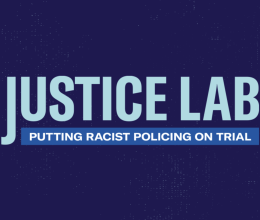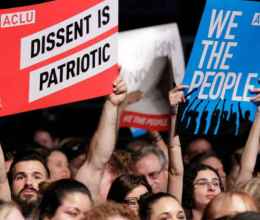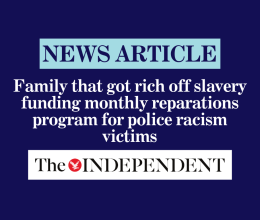NEW ORLEANS—The ACLU of Louisiana has joined Wilson Sonsini Goodrich & Rosati in the filing of an amended complaint against the United States Department of Agriculture (USDA) in the U.S. District Court for the District of Columbia. The lawsuit was filed on behalf of Angie and Wenceslaus “June” Provost Jr., who are fourth-generation sugarcane farmers in New Iberia, Louisiana, along with a proposed class, in response to alleged discriminatory practices against Black and minority farmers.
Mr. Provost grew up tending to his family’s vast 4,000+ acre farm alongside his father and brothers, and he and his wife eventually assumed full responsibility for its operations. Despite the Provosts’ dedication and diligence, years of inadequate funding through USDA loans hindered June and Angie’s ability to acquire and maintain equipment and hire workers, resulting in the loss of the family’s farm.
Provost v. Vilsack contends that despite a historic settlement in the Pigford v. Glickman litigation—one of the largest civil rights class action lawsuits in U.S. history addressing discrimination in federal farm programs—the USDA’s prejudiced practices against farmers of color persist. These practices include disproportionately denying loans, imposing unfair terms, and treating individuals differently based on race. Furthermore, the complaint alleges that the agency has been negligent in addressing discrimination claims and has proceeded with foreclosure on farmers with pending complaints.
The complaint alleges that the ordeal experienced by the Provosts is not an isolated incident; instead, it symbolizes a broader trend familiar to Black farmers across both the Southern region and the entirety of the United States. Consequently, the number of Black farmers continues to dwindle. According to the latest available Census of Agriculture data, only one in 100 farmers is Black, owning a total of less than 5 million acres.
The ACLU of Louisiana has assumed representation in this case to pursue injunctive relief for the Provost family and seek impactful and lasting change of the USDA’s discriminatory practices. The organization has a history of approaching litigation through the lens of racial justice, including police accountability, voting rights, criminal legal reform, and immigrants’ rights cases.
“The Provost family’s heartbreak over the loss of their farm is both profound and unimaginable,” said Alanah Odoms, ACLU of Louisiana executive director. “It’s an honor to stand alongside June, Angie, and the myriad black farmers who endure ongoing injustice and discrimination. We refuse to let temporary and inadequate financial concessions be mistaken for real, lasting change. Our fight is unwavering, and we will hold the USDA accountable for uprooting these unjust practices at their core.”
“As our work continues to show us time and time again, racial discrimination is not the result of a few bad apples, it is the result of systemic policies that permit prejudicial practices,” said Nora Ahmed, ACLU of Louisiana legal director. “We are proud to join the Provosts in their fight for forward-looking relief focused on reforming the unjust policies and practices of the USDA that leave Black and minority farmers without access to crucial financial lifelines received by their white counterparts.”
Wilson Sonsini filed the initial pro bono complaint in this matter in April 2024 on a pro bono basis. The firm has long engaged in successful large-scale pro bono litigation, encompassing a diverse range of cases, including prevailing at trial and on appeal against the federal government on behalf of one of the largest classes of Medicare patients in history.
“Farming is a bedrock of both life and livelihood in this great country,” said Luke Liss, pro bono partner at Wilson Sonsini. “Discrimination in the allocation of federal resources that are so vital to large-scale farming is a stain on the ideal of equality. Limited monetary relief alone does nothing to solve over 100 years of inequality or prevent it from continuing. It is essentially like pouring a few drops of water into a bucket with a hole in the bottom and then trying to sustain your garden with it— inadequate and fleeting. Previous settlements have proven this. That is why we are bringing this case pro bono, and why we are so thankful for the determination and advocacy of Angie and June and for the partnership with the ACLU of Louisiana. Systemic change providing for equality for all farmers is our North Star.”
Ariel Anaba, a long-time advocate for the Provosts and attorney at Wilson Sonsini, said, “For decades, the USDA has admitted to systemically discriminating against Black farmers—but it has not changed. By the government’s own estimates, Black farmers have suffered lost opportunities amounting to hundreds of billions of dollars. The numbers are so large that they obscure the human suffering they represent: for Angie and June, the loss of a 4,000-plus-acre family farm that June helped his father, grandfather, and great-grandfather build. No amount of money will return the land and opportunities that have been lost. But we can try to stop tomorrow's wrongs and demand equal treatment for Black farmers.”





